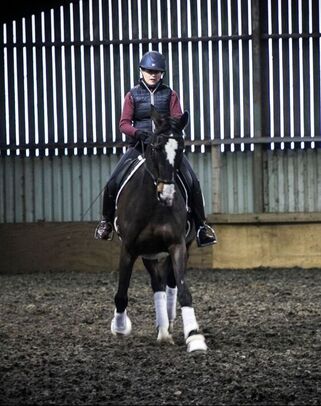 Does it sometimes get in the way of the horsemanship? Here’s some of my own thoughts, what do you think? Your horse doesn’t owe you anything, he never has. He never owed you in the first place. A horse is incapable of owing us anything. He never asked for this life, these expectations were placed upon him. It is not up to you to decide that he now doesn’t owe you anything because you feel good about achieving something together, because a dressage judge made you feel validated. The burden of debt in this relationship is heavy in the other direction. It doesn’t matter how much you paid for him, how many matchy-matchy sets you bought him, how much you’ve forked out in vets bills or even how many tears you have shed over him. A horse is a horse, he came into this world to be a half-ton bunny rabbit. He doesn’t care whether he has designer parents or a fancy price tag. He cares about feeling safe and comfortable with his needs met. By some miracle, most of them also seek to cooperate with us once they trust our intentions. He very graciously and generously goes along with our silly games and crazy ideas of ‘fun’ that serve him very little purpose, when in all honesty he would probably rather be in the field with his horsey friends eating grass. Everyday I strive to make my debt to the horse right and be grateful for their cooperation (and understanding of their sometimes lack of cooperation). And how can we do this? *Seek knowledge – learn the theory, *Try to be the best rider you can be – develop yourself and your independent seat, *Ask reasonable questions of your horse – be clear and patient, *Reward often, end the exercise, a rub, a soft word, doesn’t always have to be a cookie, *Step away from the part of our ego that feels frustrated and angry, work on developing emotional control. Take a step back, ask yourself how can I make this horse’s life better for him. Some people are happy to keep their horses in a herd, never riding or training while some people have high sporting ambitions. A happy horse is never a ‘wasted’ horse. I have no judgement about the entire horse keeping spectrum as long as the horses’ physical/ emotional needs are met AND we remember that, The horse owes us nothing, we owe him everything.
0 Comments
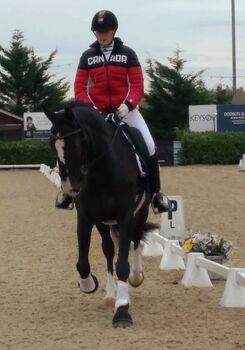 Have you ever found yourself stuck with that destructive feeling that if you can't do something PERFECTLY then you shouldn't even try? I find this phenomenon particularly common in dressage riders starting out on their journeys and virtually nonexistent in riders that are progressing really well... and that's not because they are somehow magically beyond making mistakes! Feeling the need to be perfect can drive some people to achieve fantastic, amazing things but for most people it becomes limiting and creates negative thoughts and self-doubt. 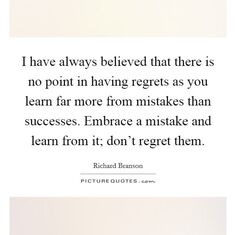 I'm not a perfectionist, I am much happier and productive as a betterist! If that word even exists. Mistakes are opportunities, they are feedback as is success. This was really brought home to me when I was teaching a lady on a young horse. Here's the story; This combination were swinging along really nicely so I thought that they were ready to introduce the barest bones of shoulder-fore. Just touch on the principles of the movement, start to get a better understanding of riding inside leg to outside rein - not produce 34 meters of precision Prix St George shoulder-in. Well, the look on the lady's face, I might as well have suggested that she fly to Mars on her horse! So we broke it down and found out where the panic was coming from. She had a mental picture of what she wanted the shoulder-in (not it's baby brother, shoulder-fore) to be and quite rightly, today, that horse was not going to be able to produce anything like remotely like that. Then we set up an exercise to create some first baby steps of something approximating shoulder-fore. Small circle, a couple of wobbly shoulder-fore steps along the wall and forward across a shallow diagonal to the middle of the short side and start again. A nice friendly continuous loop of an exercise. Again, the fear dragon needed to be slain, that exercise was considered to be too complicated and fast, that there's not enough time to create those 'perfect' shoulder-fore steps. I had to reassure her that there was plenty of time, we were only looking for a glimpse of the horse understanding that he could move on the bias along the wall from the inside leg and the cherry on the top would if the trot improved a little. Lo and behold, when the lady accepted that this was about creating a better connection, a more balanced step, a touch more engagement and encouraging the horse to accept the shaping of the body, the horse flowed through it really nicely and she was thrilled. The work created was far from perfect, it was a start. A start in overcoming the incredibly defeating mental fear of not reaching high goals as well as the physical exercise itself. 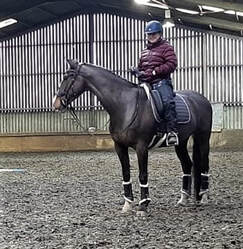 I'm sure this story will resonate with a lot of (not just dressage) riders. Please be kind to yourself and your horses, don't ride for perfect, ride for better, ride for learning and celebrate your progress! Find your motivation in developing your skills without fear of failing but the joy of discovering. This blog links to soon to be written blogs on the Power of Yet and Why riding for a 10 isn't always the best policy. Come back soon to discover more. 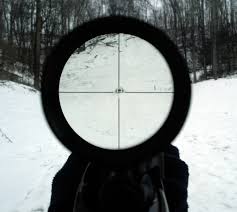 You know how important I think the walk is (#WalkingWednesday and numerous walk articles and videos!). There's no hiding in the walk, every little tiny impurity shows just as great training shines through. The walk gives the rider and the observer time to study the way every part of the horse moves. From the get-go, in the initial long rein walk, I'm always asking my students is to describe to me how their horse feels, to evaluate that information and then to decide how to use that to help the horse carry them better. Without fail, in our first session together, you can see the look of panic spread over the rider's face at this question. But I'll let know into a secret, there's no right answer! And I use this all this same question all the time when I am riding my own and client's horses. It gives me huge information about the student's (and my own, for that matter!) headspace. Are they thinking emotionally; are they thinking physically; are they isolated from the horse they are sat on; are they thinking in a binary way, black and white way? And so much more. When I ask this question of myself, I'm getting a reading on my own and the horse's emotional and physical 'crosshairs'. What hell does that mean?! Emotionally, we both want to work towards being balanced - relaxed and focused, interested in our efforts but not over stimulated so we come tense and stressed. Through focusing on the physical effort and feeling in our bodies we can be brought back into the mindful state we need to ride well. Physically, our bodies are made of three very important junctions. I see the head/poll, shoulders and hips as special areas. Each of these junctions in my mind's eye has a set of 3D crosshairs, like the sights on a rifle but in 3D. It is my job is 'just' to read these sights and then keep them lined up in balance.
Most of my dressage work is teaching the horse to understand and allow my influence, to develop a shared language and to allow me to balance the relationship between these parts of his body. Riding dressage is simply is all about find the recipe of stop and go aids to balance these three wobbly points of the horse, and the spine that connects them, while moving through increasingly complicated combinations of exercises. The wonderful German scales of training give us the framework and language to find these elusive sweet-spots. But first of all, from the moment you mount up your horse, get in the habit of feeling for what's happening in the poll, shoulders, hips and spine as well as his and your mind. This gives you a wonderful base to start your practice from and a reference to come back to time and time again. 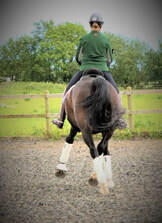 When Dirk sent me this Blog for HeartHorse I said "Yes!!! This is the one I need!!!" It perfectly explains how a mentor works with the client to help them create results that truly make their heart sing. I would definitely recommend Dirk's book as a great Christmas read for everyone and anyone looking to live their best, most meaningful life. Here's the link - https://www.dirkstroda.com/copy-of-my-newest-book Over to Dirk... 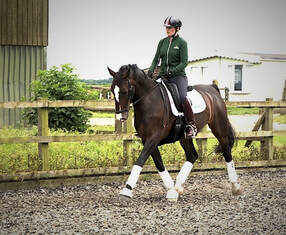 I am spending a significant amount of time with my clients on the aspect of preparation every year. Something that every serious athlete, coach, entrepreneur, CEO must do in my humble opinion. This includes but is not limited to identify goals, targets, breakthroughs and sheds light on relevance, values and timing of each aspect. The planning and preparation process can take several weeks and creates the stepping stone for future success. In my strategic planning sessions we don't just spend time on the WHAT (what is the goal ...?) but also on the WHY to identify the intrinsic motivation and if your goals have enough force to get you through all ups and downs. Preparation is a pre-requisite for your performance. Making sure that you identify your context before you shift your focus on content is crucial. In other words, keep your eyes on both - the macro (context) and the micro (content) and stress-test your ideas with yourself and a healthy amount of thoughtful criticism and discuss ideas with your core group and coach. Be strong and stay strong (and be prepared). Yours, Dirk 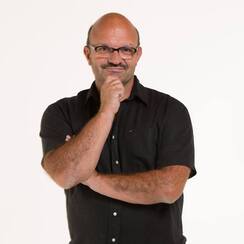 About Dirk Stroda, Legacy Coach, Canada Dirk Stroda is an author, speaker and personal coach for several world-class equestrian athletes. He conveyed his experience as the Team Mental Performance Coach to Equestrian Canada at World Equestrian Games, PanAm Games, and the Olympics/Paralympics. In his 30+ year coaching experience his athletes and teams participated at 13 Olympic Summer and Winter Games and countless National and International Championship events. Stroda co-authored widely recognized medical studies and research papers; one of them is published at the St. Andrews PGA Library. He is coaching leaders of multi-Million Dollar companies in the US and Canada. Dirk lives with his family in Kelowna, British Columbia, Canada. Contact: www.dirkstroda.com 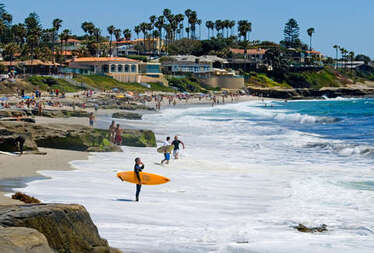 I feel very honoured that Bert Sheffield has invited me to be a guest blogger on her site and share my experience with you. I was in Newport Beach, California over the weekend for a business meeting. The meeting was on the Balboa Peninsula - a gorgeous place, white sands, dolphins that could be watched from the beaches, 30 Degrees (86 F) and of course the surfers with their surfboards. The surfers reminded me on the following principle: Never take the first wave - never the last! It can be deadly. Now, let me explain: When surfers go out in the morning they are patiently sitting on their boards out in the ocean and assess. They never rush into the water and take the first wave that they can catch. They watch where the majority of the waves are breaking and how they break, watch for currents (rip currents) and other factors like wind. They thoroughly assess the situation before catching their first wave of the day. Surfers also understand the importance when to get out of the water. They know when it's the right time for their last wave of the day. When you are exhausted, mentally and physically, and you overestimate your stamina and focus ability, if it's later in the afternoon and it's getting dark - the last wave can be deadly; and it has been for many surfers! Those principles in the surfing world can be applied to the business world. The first wave of social networking sites you may have never heard of was Six Degrees in 1997. The next one in 2002 was Friendster. If you had caught one of those waves you would not really spend time and talk about it 15 years later. However, waiting patiently for the next wave of social media site would have paid huge dividends. This wave was a big one: It was 2004 when Facebook launched its services to the world. Keep your eyes on the waves and observe. Because assessing is better than guessing! Apply the principle to your riding. You feel sluggish for your first wave/ride in the morning on a horse that needs more than normal attention? Then, don’t do it. Make sure your attention is fully on the task in front of you. The rule applies to all of us regardless what we do. Sincerely, Dirk 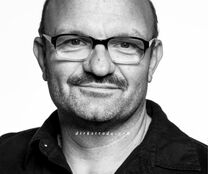 About Dirk Stroda, Legacy Coach, Canada Dirk Stroda is an author, speaker and personal coach for several world-class equestrian athletes. He conveyed his experience as the Team Mental Performance Coach to Equestrian Canada at World Equestrian Games, PanAm Games, and the Olympics/Paralympics. In his 30+ year coaching experience his athletes and teams participated at 13 Olympic Summer and Winter Games and countless National and International Championship events. Stroda co-authored widely recognized medical studies and research papers; one of them is published at the St. Andrews PGA Library. He is coaching leaders of multi-Million Dollar companies in the US and Canada. Dirk lives with his family in Kelowna, British Columbia, Canada. Contact: www.dirkstroda.com 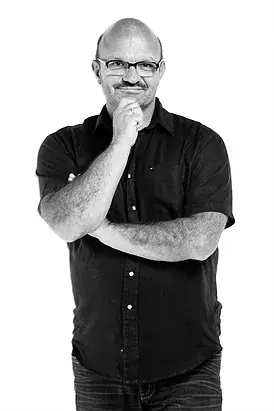 by Dirk Stroda It's our nature: we want to get better in what we are doing. Here is how: Athletes train and acquire skills that will better them physically, technically and mentally. They train every day. If they miss one day of practice, they know that their competitors will have an advantage - so they train harder the next day. Students study. They know that studying every day will do the trick and make the tests easy. British poet John Keats (1795 – 1821) made a decision and devoted his life to writing poetry. He wanted to write a very long poem. To be exact, the poem should have 4,000 lines. He achieved his goal of writing 4,000 lines with an impossible deadline. He gave himself 7 months ... and he wrote 50 lines per day. Keats not only wrote his masterpiece "Endymion" but made many invaluable experiences I want to share with you:
The take-away: Find what excites you and what you are passionate about. Do it and do it often. Do it every day. Miracles and masterpieces happen when you do them - not when you want them. Keats had his most productive two years of his short life by giving himself the rigorous task of writing 4,000 lines, step by step and day by day. He is considered one of the greatest in the history of Western literature. Cheers to a year ahead where we can all remind ourselves to elevate our standards. You don’t have to wait for the New Year 2020. The best time to start a new habit is always NOW. #mentalcoach #lifecoach #legacycoach #dirkstroda ------------------------------------------------------------ About Dirk Stroda, Legacy Coach, Canada Dirk Stroda is an author, speaker and personal coach for several world-class equestrian athletes. He conveyed his experience as the Team Mental Performance Coach to Equestrian Canada at World Equestrian Games, PanAm Games, and the Olympics/Paralympics. In his 30+ year coaching experience his athletes and teams participated at 13 Olympic Summer and Winter Games and countless National and International Championship events. Stroda co-authored widely recognized medical studies and research papers; one of them is published at the St. Andrews PGA Library. He is coaching leaders of multi-Million Dollar companies in the US and Canada. Dirk lives with his family in Kelowna, British Columbia, Canada. Contact: www.dirkstroda.com (Dirk's book is available through his website) 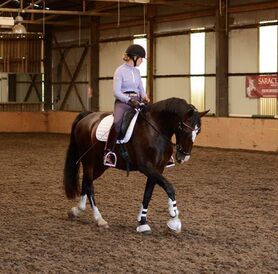 Over my coffee this morning I was reading a very interesting and wise blog by Frank Sonnenberg. For me, training horses and self-improvement are one and the same thing. After all, who doesn't want to improve themselves for the good of their horse? "Well, if you look in the mirror and don’t like what you see, don’t blame the mirror. It’s never too late to change." WOW! How profound it that! On so many levels! Let's attack this like an onion. Starting with the literal, how often do we ride with mirrors or using photo/video feedback and grumble about what we see? The aim is not to be self-satisfied; it's about being able to be personally accountable, taking responsibility for and then critically accessing what's in front of us, both positive and negative. Then on the deeper level, it is often said the horse is the mirror of our soul. The horse reflects right back at us our hopes, fears, frustrations and attitudes. Horses give us the purest feedback about who we are. (They have very little agenda. Honestly, in all the hundreds of horses I have worked with I can't think of one that had more of an agenda than expressing past baggage or its needs for safety.) If we listen to that hugely valuable feedback and take it onboard then horses will help us grow as riders and as human beings. One of the biggest leaps forward a rider can make is when they flick the internal mental switch to being accountable for their horse's feedback. Then the next big leap comes when they learn it's not personal and that they can grow from it. It's not for nothing that in the early 17th century the French court of Louis XIII set up a riding academy headed by Antoine de Pluvinel to teach the young noblemen not just the art of academic riding but the moral fibre required to lead men and govern. This hugely expensive endeavor was considered necessary to build the character to take nation's future forward. “Character isn’t something you were born with and can’t change, like your fingerprints. It’s something you weren’t born with and must take responsibility for forming.” - Jim Rohn So often today we live in with the static 'I am who I am' culture but through the honest, unbiased feedback of our horses we can form ourselves into our best 'who I am' without losing our sense of self. We are all works in progress! After teaching a lesson yesterday, we had such an interesting conversation about the effects of learning, about expectations for their riding develop journey.
This rider has been working on being able to ride their horse on the bit in a consistent rhythm and a soft horizontal frame for the last month. All has been going well, both horse and rider have been finding this easier and easier to achieve. So, on our lesson I decided to kick things up a bit and ask the rider to try to positively interfere with the horse's balance so that when he asked for more power the horse responded by becoming more up and forward rather than 'wheelbarrowing' down onto the forehand. This was met with disappointment and a certain amount of frustration as the rider had set the summit of his mountain as the nice soft feeling of cantering in rhythm in a basic, horizontal balance. That was the pinnacle of his flatwork aspiration. "The more I learn, the more I realise how much I don't know" - Einstein I had to try to explain that the summit is never reached when training or learning with a horse. You go through a continuous process of little peaks, then plateaus or even having to go back down and come back up a different path to hopefully end up higher up the mountain the next time you start to climb. Psychologists talk of unconscious competence (when you can complete a skill on autopilot) but that happens at a level, and then you have to let go off that comfortable feeling and push passed it, to develop your riding with a higher level of understanding, finesse and technicality but back to been consciously incompetent again until you have mastered that step up. Frustration, anxiety, the ebb and flow of self-belief are all natural parts of the learning journey. Everybody who is serious about riding better goes through the 'I just feel like I can't ride, I don't know what I'm doing anymore' moments. It's how you decide to handle those moments that makes the difference. Get stuck in, those are the moments of most progress, they are when change is happening. That's also when it helps to have a mentor, your mountain guide. Couldn't resist that amazing photo of the Rockies!🇨🇦 |
Author Canadian Paralympic dressage rider and trainer Bert Sheffield is the creator of the HeartHorse Dressage mentoring programme. Archives
April 2021
Categories |

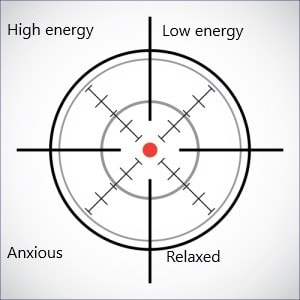
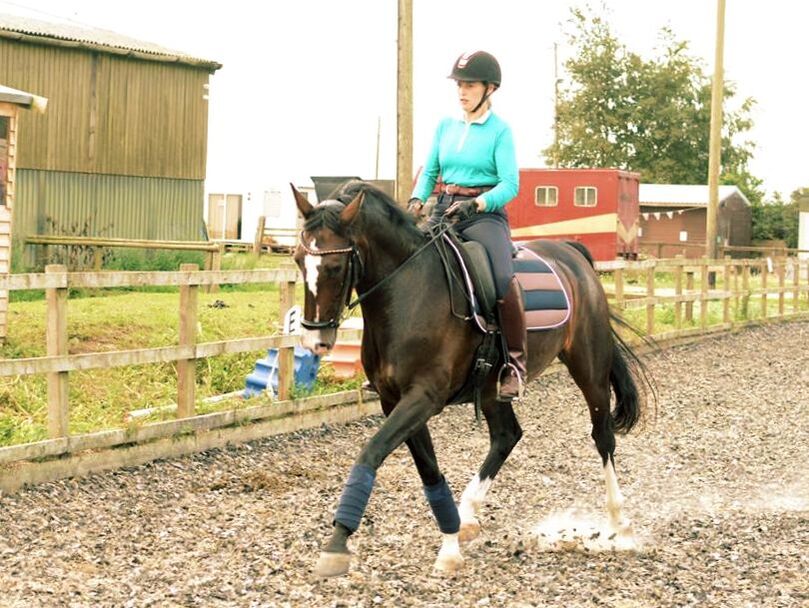
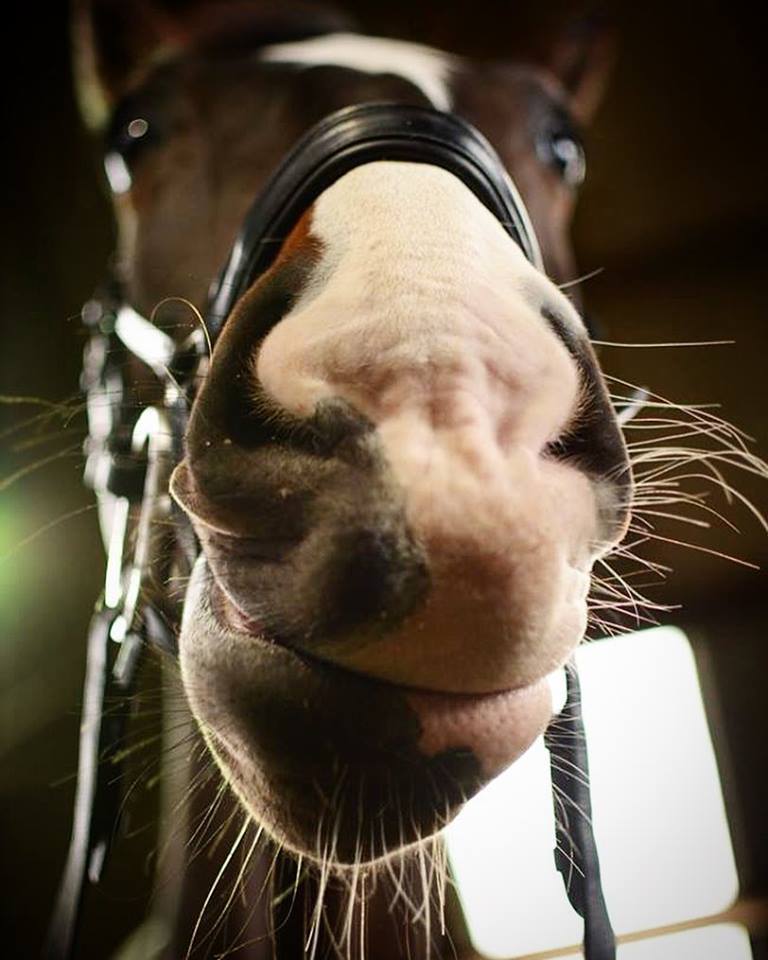
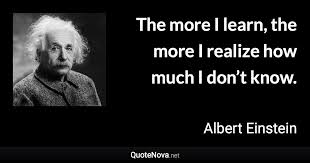


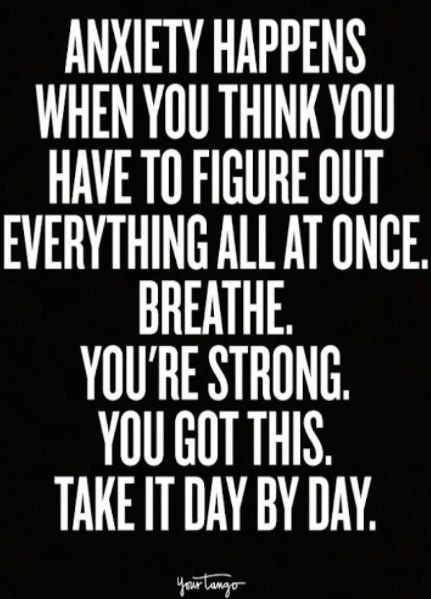
 RSS Feed
RSS Feed
